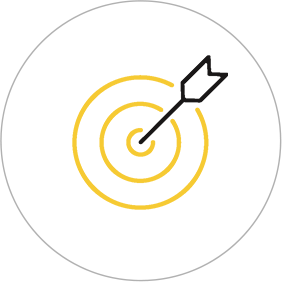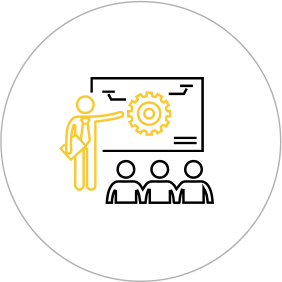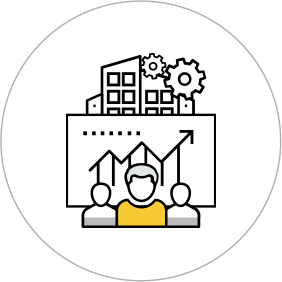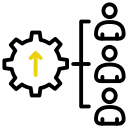FLAME: Foundational Leadership And Management Expertise
In any growing organization, the (First Time Manager) FTM population comprises the critical leadership mass. However, it’s tough to transition from being an individual contributor who performs well, to suddenly, a leader who must continue to perform well plus lead a team.
Several research done suggests that individual contributors transitioning into first time leadership roles find themselves facing new and unexpected challenges of performing against completely different performance metrices, as compared to the ones they had in their previous role. Low management skills and support on managing this transition, along with insufficient management development programs or management training programs, often lead to significant loss of productivity & engagement of teams that these new managers lead.
Thus, organizations embark on a First Time Manager training program or a variety of leadership training program for managers because many of these first-time managers feel, no one understands what they’re going through and they were not prepared well for the new role.
The Numbers Prove it:

-
20%
20% of first-time managers are doing a poor job, according to their subordinates.
-
26%
26% of first-time managers feel they were not ready to lead others to begin with.
-
60%
Almost 60% say they never received any training when they transitioned into their first leadership role.
-
4X
New leaders are 4X more likely to underperform in their new roles as compared to senior managers
-
50%
No wonder 50% of transitioning First Time Managers in organizations are rated as ineffective.

Objectives
- Leadership training programs for First-Time Managers build an understanding of the role of a new leader as well as the competencies required in the people manager role.
- Provide the critical resources for the development of the essential knowledge, skills and mindset needed for an effective transition to a leadership role.
- Build higher-order managerial skills to become more effective as a people leader.
- Enable creation of the next line of leadership.

Who Should Attend?
- Entry-level Managers – First-Time Managers who are transitioning from an individual contributor role to a People Manager role.
- Well transitioned FTMs – People Managers who have transitioned well into the role but need further managerial skill development.

Key Learning for Participants
- Understanding the Implications of transitioning from an Individual contributor role to a people manager role.
- Applying the fundamental concepts of people management like authority, empathy etc in the new role.
- Developing, supporting and empowering team members to higher performance levels.
- Manage self, pre-empt challenges and manage stakeholders for enhanced productivity.

Business Impact for Organization
- Increased role effectiveness of the new managers comes from any First Time Manager training
- Minimal loss of productivity reduced ambiguity and better predictability of results
- Reduced conflicts and higher team engagement
- The overall development of leadership competencies to achieve strategic business objectives
Design Elements






Delivery Elements







